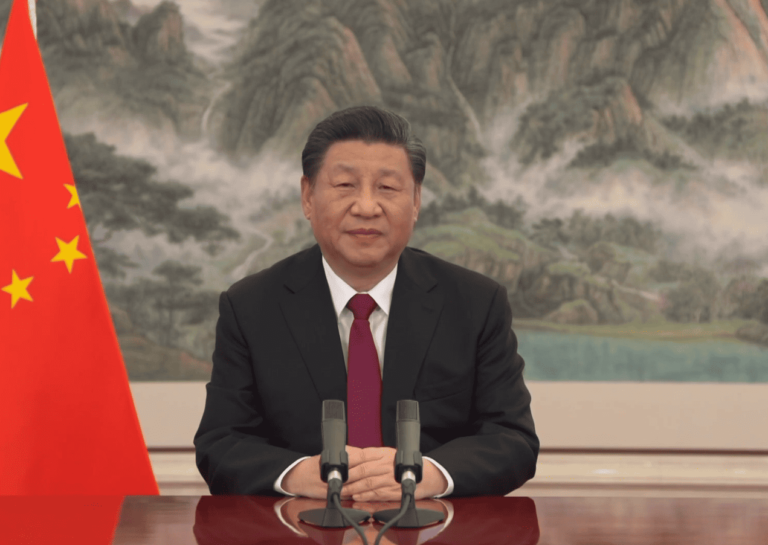Fentanyl, armies, artificial intelligence, the Middle East, the Red Sea and North Korea. There are many issues that create tensions between China and the United States. This is where relations between the two global giants stand.
Table of Contents
The fentanyl, armies and AI issues
For Biden, the fentanyl talks in Beijing are one of the few outcomes of the San Francisco summit that he can point to as a victory. China is the main source of chemicals used to make fentanyl, a synthetic opioid that kills 100,000 Americans a year.
U.S. officials have long wanted China to do more to limit exports of these chemicals, known as precursors, but Beijing has stopped cooperating as relations have deteriorated in recent years.
To convince China to resume regular talks on fentanyl, Washington in November agreed to Beijing’s request to lift US sanctions on a forensic institute run by China’s Ministry of Public Security.
The institute was placed on a trade blacklist in 2020, accused of complicity in abuses against ethnic minorities in China, such as Uyghurs. The Biden administration said the lifting of sanctions was justified because China had shut down some companies exporting fentanyl precursors and their bank accounts.
Beijing has moved to reduce tensions in other areas as well. In December he restarted talks between the two countries’ militaries, urged by Washington in hopes of reducing the risk of accidental conflict in disputed areas such as the East China Sea and the South China Sea. Countries are also expected to hold talks soon to mitigate the risks of artificial intelligence technology.
Why China doesn’t give up North Korea
But on other more complex geopolitical issues, such as the worsening crisis in the Middle East and tensions on the Korean Peninsula, the rapprochement could have a limited effect, according to analysts. China has influence over Iran and North Korea, being one of the only major nations in the world to maintain strong diplomatic and trade ties with the two heavily sanctioned countries.
Last week, US national security adviser Jake Sullivan urged Chinese Foreign Minister Wang Yi to pressure Iran to crack down on Houthi rebels attacking commercial ships in the Red Sea and persuade North Korea to reduce its threats of war. But Beijing can only do so much without harming its own interests, analysts say.
China’s priority on the Korean Peninsula is to preserve the regime of North Korean leader Kim Jong-un, so that his country remains a critical buffer between the Chinese border and US troops stationed in South Korea. This makes Beijing reluctant to push Pyongyang too forcefully and makes Kim less susceptible to Chinese pressure.
The delicate China-Iran relationship
Regarding the Red Sea, China has an interest in reducing tensions, having invested billions of dollars in logistics and energy to expand trade in the region. China said it had communicated with “various parties” to end attacks on commercial ships.
But Beijing must balance any pressure it places on Iran with its attempt to woo Middle Eastern countries to counter US global dominance.
Beijing has sought to avoid siding too closely with Washington in a region where it has earned goodwill for expressing greater sympathy for the Palestinian cause and for blaming American support for Israel as the root cause of the Middle East’s persistent conflict. Orient.
Chinese rhetoric on relations with the USA
Beijing’s recent rhetoric towards the United States highlights that it is still trying to take a tough stance and act on its own terms, while trying to get something in return for cooperation with Washington.
During their meeting, Wang told Sullivan that the United States and China should treat each other as “equals, instead of being condescending.” The White House has said it is trying to arrange a phone call between Biden and Xi in the coming months. China, however, has not yet confirmed any such plans.
Chinese propaganda outlets such as the Global Times, a Communist Party newspaper, published editorials this week saying that Washington should “cherish China’s goodwill” in agreeing to discuss the fentanyl issue. Another editorial suggested that the United States should “talk to China kindly” if it wants Beijing’s help in pressuring Iran.
China’s risky inaction
At the same time, inaction poses a risk to Beijing. China has sought to cast itself as a more credible global peacemaker than the United States, eschewing security alliances and calling for dialogue to resolve disputes, not military interventions like the American and British attacks on the Houthis.
However, Beijing has been unable, or unwilling, to try to rein in partners such as Russia, Iran, North Korea and Pakistan at a time when they are at the center of some of the world’s most dangerous conflicts.
The advantages for China of defense with the USA
Ultimately, détente with the United States could be a way for China to gain more space.
Danny Russel, vice president of the Asia Society Policy Institute and former assistant to the US Secretary of State, said that Beijing’s easing of tensions with Washington is a “tactical pause in the fight with the West” to allow Xi to devote more attention to the country’s struggling economy.
China has seen a collapse in foreign investment and confidence due to rising debt, a real estate crisis and geopolitical tensions.












